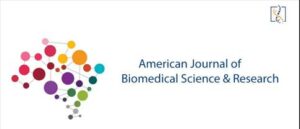 Roeper, J., Zlatkin-Troitschanskaia, O., Klose, V., Nagel, M.-T. & Schlax, J. (2020). A New Approach to Analyzing the Development of Domain-Specific Knowledge Among Undergraduate Medical Students Using Learning Scores. American Journal of Biomedical Science & Research, 7(4).: 319-323.
Roeper, J., Zlatkin-Troitschanskaia, O., Klose, V., Nagel, M.-T. & Schlax, J. (2020). A New Approach to Analyzing the Development of Domain-Specific Knowledge Among Undergraduate Medical Students Using Learning Scores. American Journal of Biomedical Science & Research, 7(4).: 319-323.
Medicine is one of the domains in higher education with the highest demands [1]. The importance of acquiring domain-specific knowledge to understand the scientific rationales of practical work in medicine is considered vital [2], about the specific responsibilities associated with medical professions. Teachers in medicine are faced with specific instructional challenges, for instance, being required to teach and examine several hundred students with heterogeneous educational backgrounds and study preconditions [3]. Consequently, in medical education practice, Multiple-Choice (MC) tests are often used in examinations because of their high level of efficiency and practicability, and despite their well-known disadvantages such as construct-irrelevant bias and low levels of explanatory power [4-5]. In particular, the extent to which teaching contributes to the development of domain-specific knowledge cannot be measured by simple post-testing with MC tests and analyzing test sum scores only [6-7]. Thus, practical implications for teaching and learning in medicine can only be derived to a very limited extent. In this paper, we present a new approach to analyzing the development of medical knowledge and suggest that a design with pre- and post-measurements and the consideration of decomposed pre- and posttest scores, which we define as learning scores, can provide substantial additional information on medical students’ learning over the course of their studies. This practicable approach can help to inform educational practitioners about students’ difficulties in learning and understanding certain medical contents, as well as to uncover possible student misconceptions about medical concepts and models.